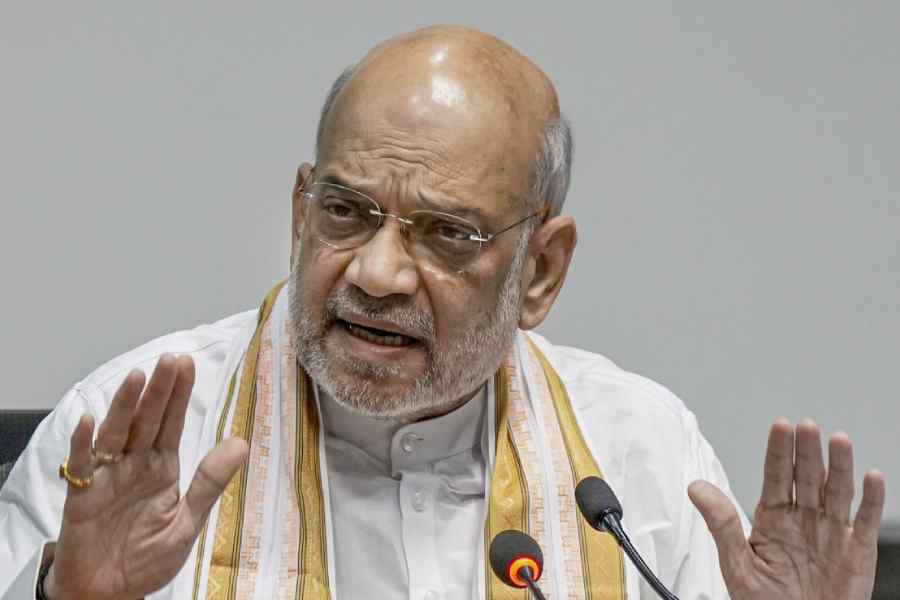Union home minister Amit Shah on Monday appealed to the Opposition not to do politics over the new criminal laws, amid protests against the way the government had enacted them without debate after suspending the rival side’s MPs.
In the face of the Opposition charge, Shah said the government was open to constructive suggestions and, if required, changes could be incorporated into the laws. He said the new laws emphasised justice rather than punishment.
“I am ready to meet anyone who wants to. We will meet and also review. But please do not do politics,” he said at a media conference while answering questions about the Opposition protests.
Rejecting the criticism that the three new criminal laws — the Bharatiya Nyaya Sanhita (BNS), Bharatiya Nagarik Suraksha Sanhita (BNSS) and the Bharatiya Sakshya Adhiniyam (BSA) — were draconian and repressive, Shah said they were modern, protected the rights of victims, and fixed accountability on police to improve the criminal justice system in India.
“These laws were passed after debates in both Houses and were scrutinised by a
parliamentary standing committee,” he said, adding that most of the suggestions from the Opposition members on the panel were accepted, “except those with a
political colour”.
In a post on X, Congress president Mallikarjun Kharge said: “After the political and moral shock in the elections, Modiji and the BJP are pretending to respect the Constitution, but the truth is that the three laws of the criminal justice system which are being implemented from today were passed forcibly after suspension of 146 MPs.”
He added: “INDIA will no longer allow this ‘bulldozer justice’ to prevail in the parliamentary system.”
The BNS, BNSS and the BSA have replaced the British-era Indian Penal Code (IPC), Code of Criminal Procedure (CrPC) and the Indian Evidence Act, respectively.
Shah said India would now have the most modern criminal justice system in the world. “The new laws have brought in a modern justice system, incorporating provisions such as Zero FIR, online registration of police complaints, summons through electronic modes such as SMS and mandatory videography of crime scenes for all heinous crimes,” he said.
He said the first case registered under the new laws — at 12.10am on Monday — was about a motorcycle theft in Gwalior, Madhya Pradesh. He added that the police had dismissed a case filed against a street vendor for selling water and tobacco products from a cart that allegedly obstructed people’s movement in central Delhi’s Kamla Market.
He said there was a provision in the new laws for community service in case of minor crimes.










